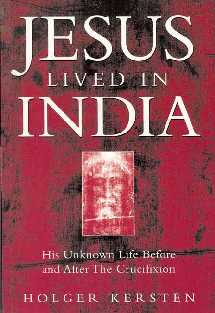 19.01.08
19.01.08
After months of grappling with William Dalrymple's THE LAST MUGHAL, I finally put to rest the life and times of Bahadur Shah Zafar in my head and the near 500-'strong' page book.
Nearly four months ago, the book was bought by me to combat boredom at the airport due to an obviously delayed flight; and was largely a result of forgetfulness. The White Mughals by the same author was what I had been intending to buy for a while. But in the airport chaos, what remained with me was 'something' Mughal and instead of a fair maiden on the cover, the old frail Mughal of an emperor came home with me.
Since then, evening after evening- preceded by long days at office - I took one tired step after another through the palaces and bylanes of the Delhi of 1857 as Mr. Dalrymple guided me slowly, throwing often unnecessary references along the way. The learning and earnestness of research of the author though, is commendable.
With my patience, or rather lack of it, the journey seemed quite cumbersome more often than not, as the narrative moved back and forth from the confines of Zafar's palace to the cubicles of the different British officials' offices. Shattering the heroic credits attributed singularly to the 'Pandy' Mangal Pandey for the 1857 Uprising, Dalrymple etches with clarity, the confusion and the causes of the rebellion. But the pace of the book was like the slow sizzle of moist firewood - never warm enough for comfort, never cold enough for frustration. The book neither allows you to abandon it nor read it on with full gusto.
I often contemplated putting away the book for good and very often used irritating excuses of lack of time and tiredness...the bottom line being - I WAS BORED! But as I said, the book never let off the gnawing and I kept returning to it to find out the grim details of the falling someone's fortune.
In the last one week, since I came home, I took to the book and the book took to me too - especially the poor dear, Zafar. One cannot help but feel pity for the eighty-two year old man who is as helpless against his falling teeth as he is against his falling dynasty. Stuck between being the symbol of power for the rebel armies of Hindoostan and a dependent-on-British-pension; between the royal habits of luxury and the glaring reality of poverty; between his favourite queen - the manipulative Zinal Mahal & her son Mirza Jawan Bakht and his eldest children, Zafar is ground into pathetic grain throughout.
Dalrymple successfully makes one oscillate between feeling joy when the rebels have an upper hand and victory seems close and agony when the Brits bounce back and drive 'us' out. The narrative tugs at the most sensitive humanitarian strings and one cringes with equal disgust as the Pandies ravage the properties and modesties of the British and later the British inflict with twice the vengeance the same wounds. The brutal murders, cuttings, hackings, shootings and hangings make your stomach churn even as the stink of heaped and rotting corpses waft up to evoke nauseous feelings. The tales of courage on the one hand and murder and treachery on the other makes one love and hate humans at the same time.
Dalrymple beautifully sums up the book pointing to and co-relating the fundamental problems of the Hindu-Muslim divide and the Islamic fundamentalist-Western imperialist strife, making clear in the simplest way the most complicated situations of contemporary world politics...
Definitely worth the effort!





